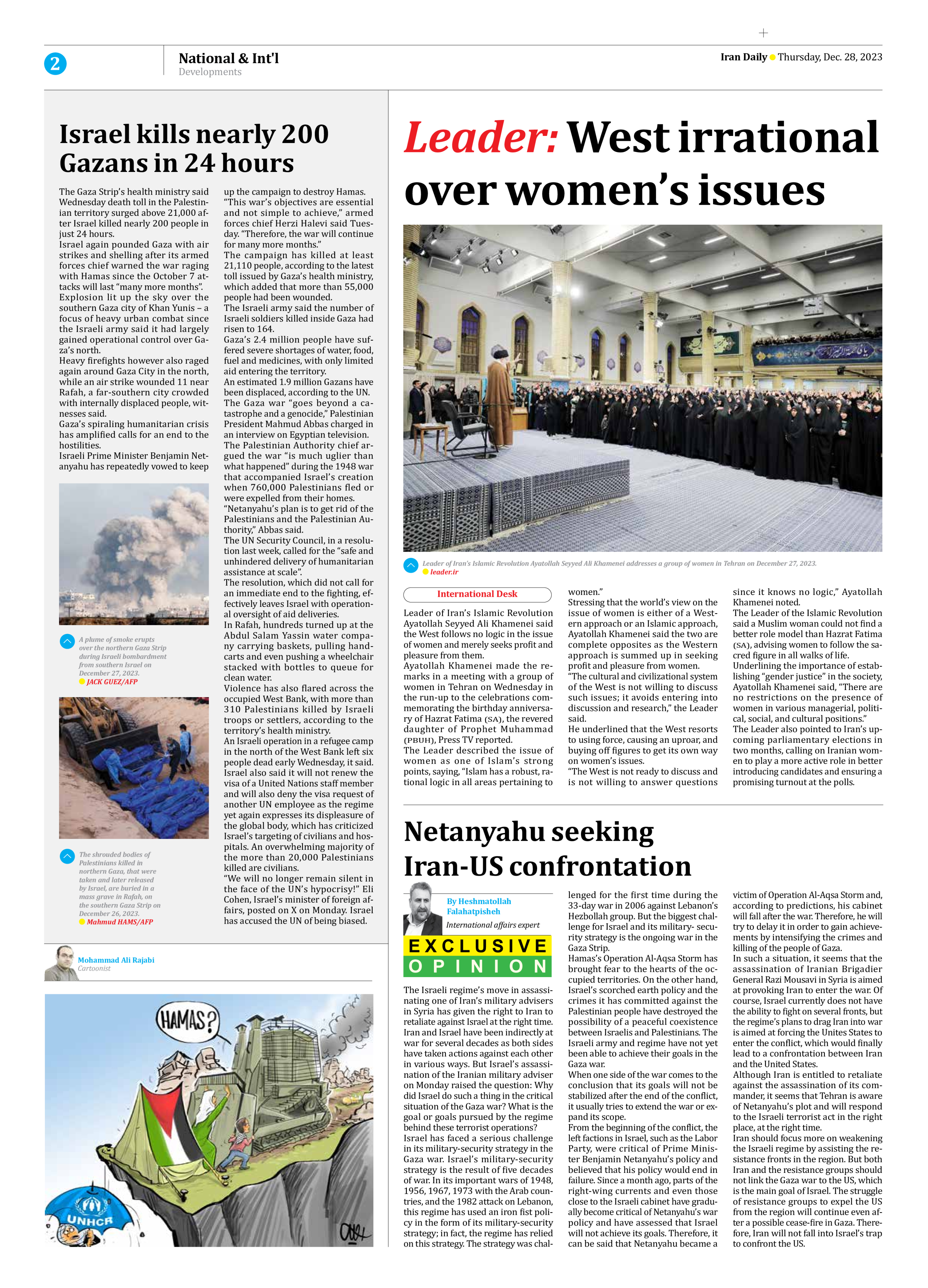
Netanyahu seeking Iran-US confrontation
By Heshmatollah Falahatpisheh
International affairs expert
The Israeli regime’s move in assassinating one of Iran’s military advisers in Syria has given the right to Iran to retaliate against Israel at the right time. Iran and Israel have been indirectly at war for several decades as both sides have taken actions against each other in various ways. But Israel’s assassination of the Iranian military adviser on Monday raised the question: Why did Israel do such a thing in the critical situation of the Gaza war? What is the goal or goals pursued by the regime behind these terrorist operations?
Israel has faced a serious challenge in its military-security strategy in the Gaza war. Israel’s military-security strategy is the result of five decades of war. In its important wars of 1948, 1956, 1967, 1973 with the Arab countries, and the 1982 attack on Lebanon, this regime has used an iron fist policy in the form of its military-security strategy; in fact, the regime has relied on this strategy. The strategy was challenged for the first time during the 33-day war in 2006 against Lebanon’s Hezbollah group. But the biggest challenge for Israel and its military- security strategy is the ongoing war in the Gaza Strip.
Hamas’s Operation Al-Aqsa Storm has brought fear to the hearts of the occupied territories. On the other hand, Israel’s scorched earth policy and the crimes it has committed against the Palestinian people have destroyed the possibility of a peaceful coexistence between Israelis and Palestinians. The Israeli army and regime have not yet been able to achieve their goals in the Gaza war.
When one side of the war comes to the conclusion that its goals will not be stabilized after the end of the conflict, it usually tries to extend the war or expand its scope.
From the beginning of the conflict, the left factions in Israel, such as the Labor Party, were critical of Prime Minister Benjamin Netanyahu’s policy and believed that his policy would end in failure. Since a month ago, parts of the right-wing currents and even those close to the Israeli cabinet have gradually become critical of Netanyahu’s war policy and have assessed that Israel will not achieve its goals. Therefore, it can be said that Netanyahu became a victim of Operation Al-Aqsa Storm and, according to predictions, his cabinet will fall after the war. Therefore, he will try to delay it in order to gain achievements by intensifying the crimes and killing of the people of Gaza.
In such a situation, it seems that the assassination of Iranian Brigadier General Razi Mousavi in Syria is aimed at provoking Iran to enter the war. Of course, Israel currently does not have the ability to fight on several fronts, but the regime’s plans to drag Iran into war is aimed at forcing the Unites States to enter the conflict, which would finally lead to a confrontation between Iran and the United States.
Although Iran is entitled to retaliate against the assassination of its commander, it seems that Tehran is aware of Netanyahu’s plot and will respond to the Israeli terrorist act in the right place, at the right time.
Iran should focus more on weakening the Israeli regime by assisting the resistance fronts in the region. But both Iran and the resistance groups should not link the Gaza war to the US, which is the main goal of Israel. The struggle of resistance groups to expel the US from the region will continue even after a possible cease-fire in Gaza. Therefore, Iran will not fall into Israel’s trap to confront the US.







